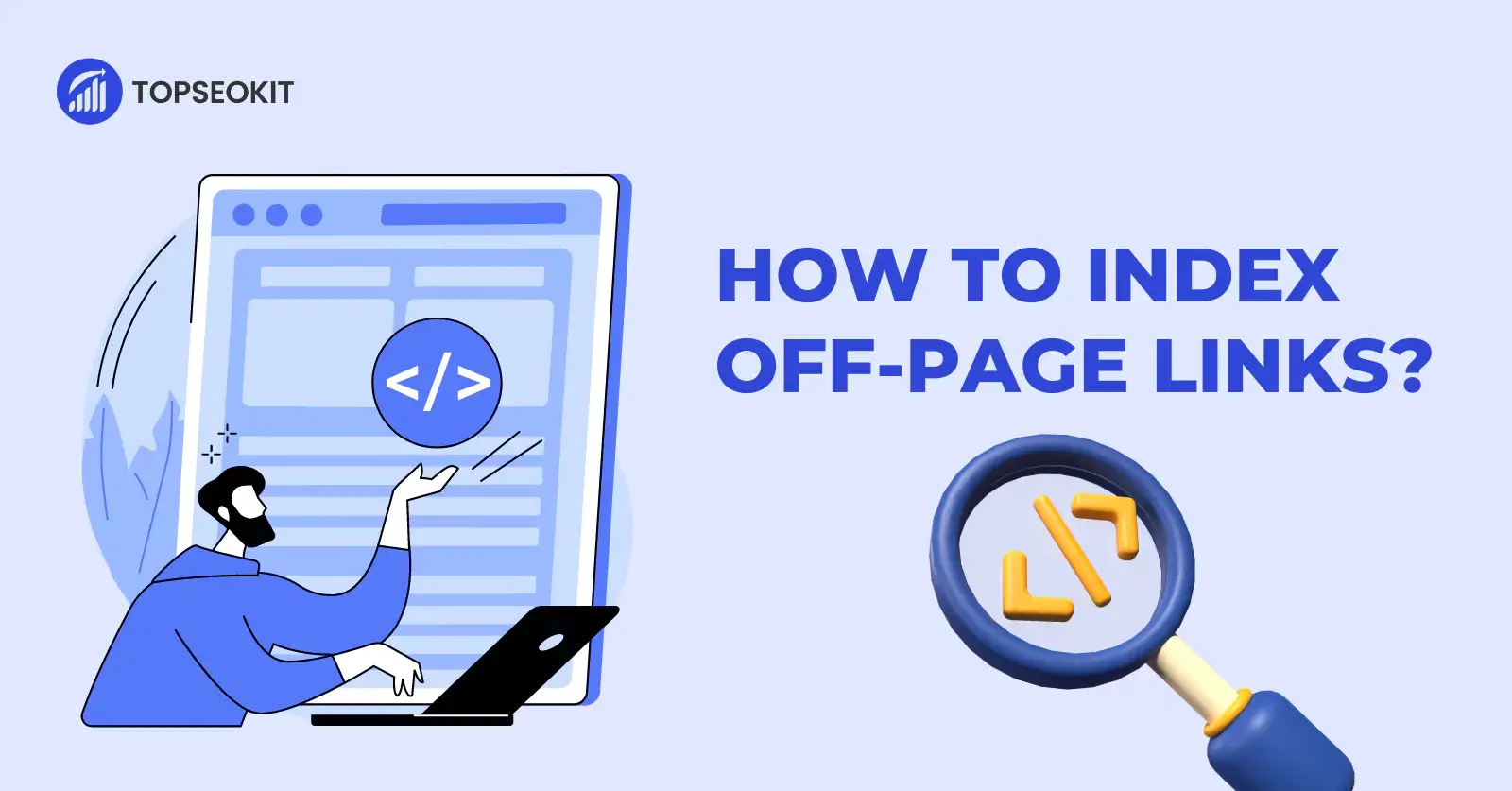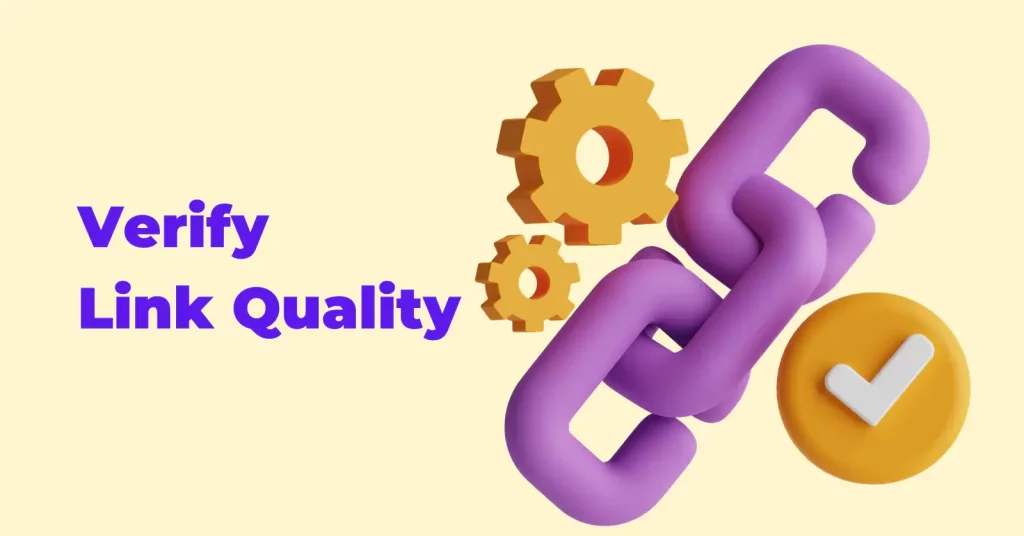
How to Index Off-Page SEO Links: A Quick Guide
In today’s world, every website owner wants to increase their website’s visibility and ranking on search engine result pages (SERP). By using Off-Page SEO, you can build links, market on social media, and use other external techniques to achieve this goal. Your website’s ranking can be significantly affected by link building, which is the most […]
In today’s world, every website owner wants to increase their website’s visibility and ranking on search engine result pages (SERP). By using Off-Page SEO, you can build links, market on social media, and use other external techniques to achieve this goal.
Your website’s ranking can be significantly affected by link building, which is the most important aspect of off-page SEO. How to index off-page SEO links? In order to enhance your website’s online presence, you should learn how to index Off-Page SEO links.
How to Index Off-Page SEO Links: Process
Digital marketing strategies should include off-page SEO, which helps to increase your website’s visibility and authority on the Internet. Link building is key to boosting your off-page SEO efforts, which involves obtaining links from reputable websites.
However, simply building links is not enough – you must ensure that search engines properly index these links to derive maximum benefit from them. In this article, we will explain how to index off-page SEO links step-by-step.
Step 1: Verify Link Quality

Before you even think about indexing your off-page links, ensuring they are high-quality and relevant to your website is important. You should avoid obtaining links from low-quality websites or spammy directories, as these can harm your SEO efforts. Instead, focus on building links from authoritative websites with high domain authority and a strong online presence within your niche.
Step 2: Monitor Your Backlink Profile
Once you have obtained off-page links, monitoring your backlink profile is important to ensure these links remain relevant and effective. If there are broken or low-quality links in your backlinks, you can remove them using tools such as Ahrefs or SEMrush. This will ensure that your backlink profile remains clean and relevant, which will help to improve your SEO rankings.
Step 3: Be Patient and Persistent:
Indexing off-page links is an ongoing process that requires patience and persistence. It may take some time for search engines to index new backlinks, but consistently following best practices and monitoring the status of indexed links can help improve a website’s search engine ranking over time.
Step 4: Create an XML Sitemap
In an XML sitemap, all the pages of your website are listed, along with their structure and content. When you create an XML sitemap, search engines will have an easier time crawling and indexing your website, which can help improve your SEO rankings.
Regarding off-page SEO, indexing any backlinks pointing to your site is important. You can use tools such as Yoast SEO or Google XML Sitemaps to know how to index off-page SEO links. Submitting an XML sitemap will help search engines index your site. Backlinks can be discovered and crawled more efficiently by search engines, potentially improving your website’s SEO.
Step 5: Submit Your Sitemap to Google

Once you have created your XML sitemap, you must submit it to Google. Your website’s ranking in Google search results can be tracked and maintained by a free tool called Google Search Console. All the pages on your website are indexed and included in Google’s search results when you submit your sitemap to Google.
Step 6: Use Fetch as Google
Fetch as Google is a tool within Google Search Console that allows you to see how Google crawls and indexes your website. Using this tool, you can identify any issues preventing your off-page links from being indexed, such as broken links or blocked pages. You can then take corrective action to resolve these issues and improve your website’s visibility in search results.
Step 7: Build Social Signals

Social signals indicate a website’s popularity and authority on social media platforms such as Facebook, Instagram, Twitter, and LinkedIn. It is possible to improve your off-page SEO efforts and increase the visibility of your website by building social signals. Building social signals involves sharing your content on social media, engaging with your audience, and encouraging them to share your content.
Step 8: Use Web 2.0 Sites
Web 2.0 sites allow users to create and share content like blogs, social networks, and wikis. You can improve your website’s visibility in search results by posting content on web 2.0 sites and linking to it. The most important thing is to ensure that the content on your website is high quality and relevant.
Step 9: Use Forum Posting
Various topics are discussed in forums, which are online communities. Through forums, you can promote your website and connect with others in your niche. Forum participation enhances the discussion and prevents spam.
Step 10: Use Google Search Console & Bing Webmaster

These tools can help site owners monitor the number of indexed links and identify any indexing issues. Site owners can also submit sitemaps and individual URLs for indexing.
Step 11: Guest Blogging
You can also improve your search engine rankings in addition to getting backlinks. By writing a guest blog, you are able to receive a backlink to your own website while writing an article for another website in your niche. Select reputable websites that are relevant to your niche and have high domain authority.
Step 12: Use Directory Listings

A web directory is a listing of websites categorized by category. Besides providing backlinks to your website, they can also help index it. Search engines are more likely to index and find your website if it is submitted to a directory.
This is how you will learn how to index off-page SEO links.
FAQ’s
How do I track off-page SEO?
Tracking off-page SEO involves monitoring backlinks, social media engagement, and brand mentions. You can use tools such as Ahrefs, SEMrush, or Google Analytics to track your website’s backlinks and referral traffic and social media analytics tools to track engagement metrics. Additionally, you can set up alerts or use online reputation management tools to monitor brand mentions across the web.
How can I get backlinks for SEO off-page?
Ways to get backlinks for SEO off-page:
● Guest posting
● Creating valuable content
● Participating in forums
● Requesting links
● Creating shareable content
● Submitting to directories
● Using social media
What is off-page SEO, for example?
The purpose of off-page SEO is to improve a website’s search engine rankings by optimizing activities that occur off the website’s pages. In this category, link building, social media marketing, influencer outreach, and content marketing are all included.
What are off-page SEO activities?
Activities related to SEO that take place off-page refer to actions that are taken to improve search engine rankings for a website. There are several techniques involved, including link building, social media marketing, guest blogging, and influencer outreach. Increasing a website’s visibility, credibility, and authority can increase its search engine ranking and traffic.
Conclusion:
The proper indexing of off-page SEO links is crucial for successful search engine optimization. Backlinks won’t boost a website’s ranking without proper indexing. Site owners can use Google Search Console, Bing Webmaster Tools, and third-party indexing tools to determine how to index off-page links, monitor the number of indexed links, and resolve indexing issues.
High-quality backlinks from reputable sources are important for boosting search engine rankings, while avoiding penalties by ensuring relevance, diversity, and natural-looking links.
Regular monitoring of backlinks, removing low-quality links, and disavowing spammy backlinks is essential for a healthy link profile. Off-page SEO link indexing requires patience and persistence, and website owners should follow best practices to ensure proper indexing.
Also Read:
Let’s dive in! Get started for free
